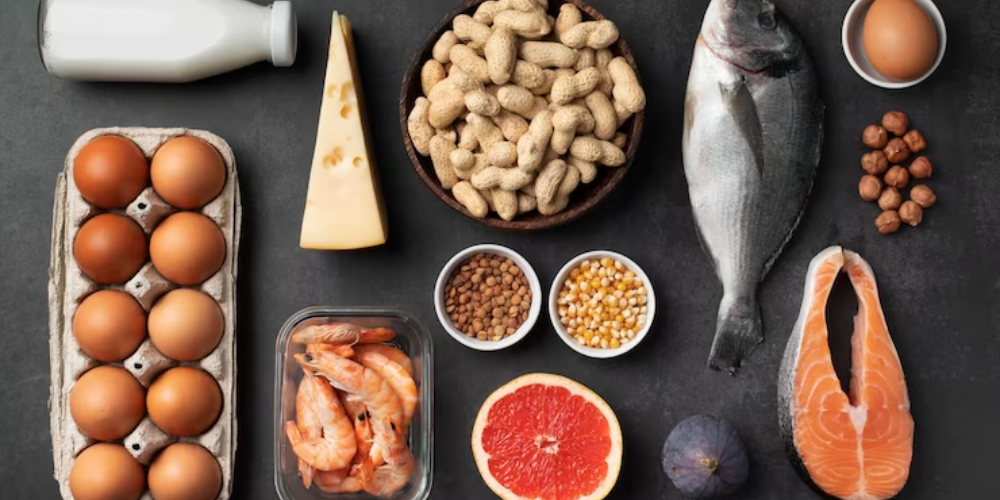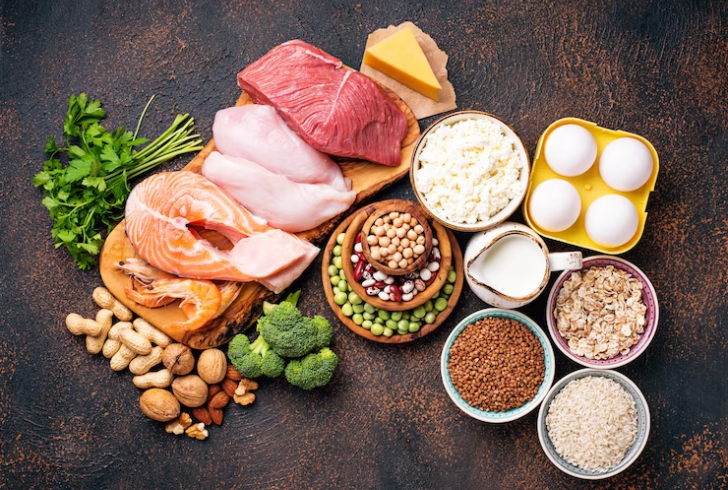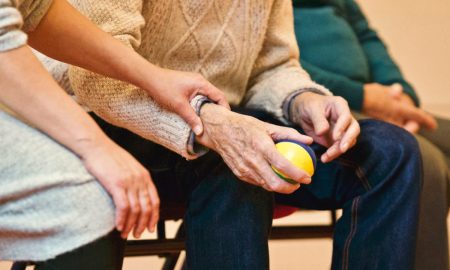
Protein’s Role in Your Diet: Friend or Foe?

Protein, a word synonymous with muscle building and healthy living, has become a major focus in our food choices. From protein-infused cereal to high-protein coffee, manufacturers are capitalizing on our desire to be healthy and fit.
But with all this emphasis on protein, it’s crucial to understand how much you need and the potential downsides of consuming too much.
The Power of Protein

Freepik | yuliyafurman | Composed of amino acids, protein is crucial for our health.
Protein, made up of building blocks called amino acids, plays a vital role in our health. It’s essential for:
- Immune function: Keeping us healthy by fighting off infections
- Muscle growth and repair: Maintaining and strengthening our muscles
- Fat metabolism: Helping our bodies use fat for energy
- Healthy hair, nails, and bones: Contributing to the structural integrity of our bodies
Protein also keeps us feeling full and satisfied, which can be helpful when managing weight. Compared to pure fat, gram for gram, protein also packs fewer calories, making it a smart choice for those watching their intake.
Protein and Fitness
As we age, around 40, we begin to lose muscle mass, a condition called sarcopenia. This can lead to weakness, poor balance, and an increased risk of falls. Regular exercise and adequate protein intake are vital for maintaining muscle strength. After exercise, protein acts as building blocks, aiding in muscle repair and rebuilding.
How Much Protein Do We Need?
The average woman needs around 45 grams of protein per day, while men require 55 grams. Aiming for 15-20 grams of protein with each meal is recommended. Research suggests spreading this intake throughout the day rather than having one large protein-rich meal.
Yet, there are individual considerations:
- Older adults: As we age, our bodies become less efficient at absorbing nutrients, and our appetites decrease. It’s crucial to ensure adequate protein intake to maintain muscle mass, especially for seniors.
- Athletes: Individuals engaged in strenuous exercise may need more protein for muscle strength and recovery.
Can You Have Too Much of a Good Thing?

Freepik | Worrying for individuals with pre-existing kidney conditions, such as diabetes.
Unfortunately, yes. Excessive protein intake can
- Strain your kidneys: This is particularly concerning for individuals with pre-existing kidney issues, like those with diabetes.
- Increase the risk of osteoporosis: The NHS website warns about the potential link between high protein consumption and osteoporosis.
- Contribute to health issues: Research suggests a connection between excessive red and processed meat intake and heart disease, diabetes, and some cancers.
The Department of Health advises adults against consuming more than twice the recommended daily protein intake. Moderation is key.
Where to Find the Protein You Need
Instead of relying on protein shakes, supplements, or high-protein foods, opt for occurring protein from a variety of sources:
- Meat: Chicken, fish, lean beef
- Eggs: A classic source of complete protein
- Dairy: Milk, yogurt, cheese
- Plant-based options: Beans, lentils, peas, nuts, seeds
- Soy products: Tofu, tempeh
Recent studies highlight the benefits of plant-based protein in reducing the risk of chronic illnesses later in life.
Protein and Youthful Appearance

Freepik | Sufficient protein intake may prevent age-related muscle loss, promoting a youthful appearance.
Adequate protein intake can help prevent age-related muscle loss, contributing to a more youthful appearance. Additionally, protein is essential for healthy skin and hair, promoting collagen production, a protein responsible for skin elasticity and firmness.
A Guide to Protein Content in Everyday Foods
Here’s a quick reference to estimate your protein intake:
- 140g boiled wholegrain rice – 5g protein
- 2 x 60g oatcakes – 6g protein
- 90g cooked pasta – 8g protein
- 90g peas – 7g protein
- 3 tsp peanut butter – 8g protein
- 1 large baked potato – 5g protein
- 1 large slice of wholegrain bread – 6g protein
- 100g baked beans – 7g protein
Remember: Moderation and variety are key. Consult your doctor or a registered dietitian for personalized advice about your specific protein needs and dietary goals. They can help you create a healthy, balanced, and sustainable eating plan.
More in Nutrition & Weight Loss
-
`
Is Swimming in Cold Water Good for You?
Swimming is a beloved activity that provides numerous physical and mental health benefits. Swimming can be a fantastic workout, whether you’re...
November 15, 2023 -
`
Unlocking the True Benefits of Detox Water
Detox water has taken the health and wellness world by storm, promising a wide range of benefits that go beyond ordinary...
November 7, 2023 -
`
How Tom Brady Shed 10 lbs After Retirement
One of the NFL’s most celebrated athletes, Tom Brady, has always been a topic of discussion. Brady never fails to surprise,...
November 1, 2023 -
`
AI’s Hidden Toll on Our Brains
Artificial Intelligence (AI) has permeated almost every facet of our lives, from virtual assistants and recommendation algorithms to autonomous vehicles and...
October 24, 2023 -
`
What to Drink During a Workout
When it comes to getting the most out of your workout, proper hydration is key. What you drink during exercise can...
October 17, 2023 -
`
Wearable Technology Applications in Healthcare
The world of healthcare is evolving at an unprecedented pace, and wearable technology is one of the driving forces behind this...
October 10, 2023 -
`
Initiating and Integrating Exercise in Daily Life
Incorporating exercise into our daily lives is essential for maintaining optimal health and well-being. However, initiating a fitness routine and seamlessly...
October 10, 2023 -
`
Jason Momoa’s Workout Routine for Iconic Aquaman Look
We all remember the moment: The big screen lights up, waves crash, and out emerges Jason Momoa as Aquaman, with his...
October 8, 2023 -
`
Crying: The Benefits on Mental Health
In a world that often champions stoicism and emotional restraint, shedding tears is sometimes dismissed as a sign of vulnerability. However,...
September 26, 2023















You must be logged in to post a comment Login